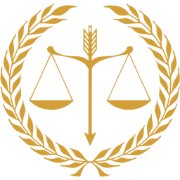Best Art & Cultural Property Law Lawyers in India
Share your needs with us, get contacted by law firms.
Free. Takes 2 min.
Or refine your search by selecting a city:
List of the best lawyers in India
About Art & Cultural Property Law in India
Art & Cultural Property Law in India deals with the regulation and protection of the nation's rich heritage, embracing both tangible and intangible cultural assets. This field of law is vital in safeguarding the country's cultural patrimony, preventing the illegal trafficking and export of cultural goods, and ensuring the preservation of cultural sites. The Colonial-era legal framework has evolved to accommodate contemporary challenges, with the Antiquities and Art Treasures Act, 1972, International Treaties, and Convention Heritage sites playing pivotal roles in setting standards and procedures for governing cultural property in the country.
Why You May Need a Lawyer
There are several scenarios in which legal expertise in Art & Cultural Property Law can prove invaluable. Among these are:
- Dispute resolution over the ownership or provenance of art pieces or cultural artifacts.
- Legal representation in cases of art theft or illicit trafficking of cultural properties.
- Assistance in navigating the regulatory landscape for museums, galleries, and private collectors.
- Guidance on compliance with national and international laws for archaeologists or researchers.
- Representation during the acquisition or sale of culturally significant artifacts.
- Legal counsel for institutions requiring permission for excavations or transfer of artifacts.
Local Laws Overview
India's legal framework for art and cultural property includes several noteworthy components:
- Antiquities and Art Treasures Act, 1972: This Act regulates the export of antiquities and art treasures, requiring relevant items to be registered and prohibiting their export without a license.
- The Indian Treasure Trove Act, 1878: Governs the discovery and reporting of treasures, with stipulations for government claims.
- The Ancient Monuments and Archaeological Sites and Remains Act, 1958: Protects monuments, archaeological sites, and remains of historical significance.
- UNESCO Conventions: India is a signatory to conventions such as the Convention for the Protection of Cultural Property in the Event of Armed Conflict and the Convention on the Means of Prohibiting and Preventing the Illicit Import, Export, and Transfer of Ownership of Cultural Property.
Frequently Asked Questions
What qualifies as an antiquity under Indian law?
An antiquity is any object or art over 100 years old, including manuscripts, coins, sculptures, paintings, and other historical artifacts.
Can private collectors own antiquities in India?
Yes, but they must register their collections with the relevant authorities to ensure compliance with the Antiquities and Art Treasures Act, 1972.
How can I determine the provenance of an art piece?
Consult an art lawyer or a professional appraiser who can access historical records, prior ownership documentation, and expert opinions to verify provenance.
What is the penalty for illegal export of cultural property?
Illegal export can lead to stringent penalties, including fines, imprisonment, and confiscation of the property in question.
Is permission required to excavate a historical site?
Yes, you must seek permission from the Archaeological Survey of India or relevant state departments before any excavation or exploration activities.
How does International Law impact cultural property in India?
India's adherence to international conventions aids in the recovery and return of stolen cultural properties and sets standards for international cooperation on cultural affairs.
What steps should I take if I inherit a potentially historic artifact?
Consult a legal expert to assist with authentication and the necessary registration processes to comply with Indian law.
Are there legal protections for contemporary art in India?
While the focus often lies on antiquities, contemporary art is protected under intellectual property rights, and artists may seek recourse under copyright laws.
How can one resolve disputes over art ownership?
Resolution methods may include mediation, arbitration, or litigation, often requiring expert evaluation and legal representation.
Where can I report stolen cultural property?
Such incidents can be reported to local law enforcement authorities and the Archaeological Survey of India, along with international organizations such as INTERPOL.
Additional Resources
For further information and assistance, consider reaching out to the following:
- Archaeological Survey of India (ASI): The primary body overseeing the preservation and regulation of India's ancient monuments and cultural heritage.
- Ministry of Culture, Government of India: Offers guidelines, reports, and resources on cultural policies and heritage conservation.
- UNESCO: Provides insights into international cultural property laws and conventions India adheres to.
- National Monuments Authority: Sets regulations and issues clearances for protected monuments and heritage sites.
Next Steps
If you need legal assistance in Art & Cultural Property Law in India, consider taking the following steps:
- Identify and list the specific legal issues or concerns you are facing regarding art or cultural property.
- Search for legal professionals specializing in Art & Cultural Property Law through reputable directories or bar associations.
- Arrange initial consultations, presenting your case and seeking their advice on the best course of action.
- Gather all relevant documentation, evidence, and correspondences that pertain to your legal situation.
- Ensure open communication with your lawyer to plan your legal strategy accordingly.
Lawzana helps you find the best lawyers and law firms in India through a curated and pre-screened list of qualified legal professionals. Our platform offers rankings and detailed profiles of attorneys and law firms, allowing you to compare based on practice areas, including Art & Cultural Property Law, experience, and client feedback.
Each profile includes a description of the firm's areas of practice, client reviews, team members and partners, year of establishment, spoken languages, office locations, contact information, social media presence, and any published articles or resources. Most firms on our platform speak English and are experienced in both local and international legal matters.
Get a quote from top-rated law firms in India — quickly, securely, and without unnecessary hassle.
Disclaimer:
The information provided on this page is for general informational purposes only and does not constitute legal advice. While we strive to ensure the accuracy and relevance of the content, legal information may change over time, and interpretations of the law can vary. You should always consult with a qualified legal professional for advice specific to your situation.
We disclaim all liability for actions taken or not taken based on the content of this page. If you believe any information is incorrect or outdated, please contact us, and we will review and update it where appropriate.
Browse art & cultural property law law firms by city in India
Refine your search by selecting a city.

















